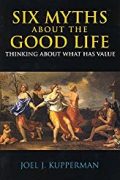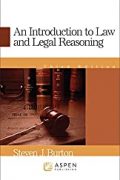
Rating: 8.7/10.
Ch1: Libertarianism (Robert Kane)
Libertarianism is the view that the universe is not deterministic, and this is necessary for FW; also, FW is necessary for moral responsibility. It’s closest to laymen’s intuitions about FW. Compatibilists attack it in two ways: (1) by claiming that determinism doesn’t conflict with FW, and (2) that indeterminism doesn’t necessarily give you FW.
The Consequence Argument is a strong case against compatibilism. We cannot change the past, we cannot change the laws of nature, determinism means the past determines the future, therefore in a world with determinism we cannot change the future, therefore we don’t have FW. It uses the Transfer of Powerlessness Principle (TP) which says if we cannot control X, and X -> Y, then we cannot control Y. Compatibilists redefine the word “can” so that TP technically no longer applies, libertarians say this is not convincing, and now we reach an impasse.
Moving past the debate of whether there are Alternate Possibilities (AP), Ultimate Responsibility (UR) is the idea that moral responsibility requires that agents have FW. Martin Luther once reached a point where he “has no choice but to rebel against the church”, but he still has moral responsibility because he made choices beforehand that led to him being in this state. These are Self-Forming Actions (SFAs) — points that the next action will change your future self, but the next action is not determined by the past. So UR seems to require at least some actions to be will-setting SFAs.
But AP is not enough for UR: consider the case when you intend to do X, but by chance you actually do Y. Then you could have done either X or Y, but you were not in control of this. Also UR requires you to be the source of the choices, if God set everyone’s desires from the beginning, then you don’t have UR.
The Intelligibility Problem asks how can FW arise out of randomness? Easy to posit an “extra factor” like a soul that’s not physical and not random, but better not to need such mysterious factors. One way is to view indeterminism as an obstacle that you must overcome. You want to do X, but there is brain noise that might randomly cause you to do Y, but you’re still responsible for doing X. In the case of SFAs, you have multiple competing desires and the random noise makes it so that your final choice is not predictable, but you’re responsible for whatever happens to be your final choice.
Thus, you should think of randomness not as a causal factor, but as something that interferes with our goals. If you tried to shoot the president but the bullet only had a 50% chance of hitting, you’re still 100% responsible for the act. This view defended by Kane is the “event-causal” view or “causal indeterminism” in the literature.
Ch2: Compatibilism (John Martin Fischer)
Compatibilism is the view that FW and causal determinism can co-exist. An attractive feature is that if it was suddenly found that the universe is deterministic, we don’t have to give up FW. Already some proportion of events are deterministic, and compatibilism says there’s not any sudden shift if this proportion goes from 90% to 99.9% to 100%.
The conditional analysis defines “S can do X” as “if S chose to do X, then S does X”. This technically defeats the Consequence Argument, but is flawed: if a boy is scared of snakes, he “can” still pick up the snake if he chose to. Of course, he is not capable of choosing to. This seems to contradict the intuitive meaning of the word “can”. Other ways of attacking the Consequence Argument are proposals that we can change the past, or change the laws of nature at will, but those are not very convincing. The author defends a semicompatibilist position that stands even if the Consequence Argument is sound.
Frankfurt examples are cases when S can choose between X and Y, but if S chose to do Y, then something forces him to do X. Thus, S has guidance control (able to choose X and Y) but no regulatory control (he is forced to do X). Some people say guidance control is enough for moral responsibility, but author finds this unconvincing.
Source incompatibilism is the argument that all our actions are initiated by something in the past, so the locus of control is external to us, so we can’t have moral responsibility (MR). The counterargument is we’re never in total control, there are always external forces that affect what we do (eg: your plans depend on the sun not disappearing). Therefore we’re only ever partially responsible, and our inability to control the time before we were born is just another case of partial responsibility.
In semicompatibilism, causal determinism is compatible with MR. It doesn’t allow AP, and leaves undetermined whether there can be FW without AP. Can think of it as a Frankfurt-like world, in which if you were to do otherwise, the universe will not allow you — but you will never choose to do otherwise because your choice will always coincide with what the universe allows.
Ch3: Hard Incompatibilism (Derk Pereboom)
Hard incompatibilism is the position that if determinism is true, then we can’t have free will or moral responsibility. Compatibilists claim that in Frankfurt-style cases, guidance control is sufficient for MR. Pereboom argues that Frankfurt cases don’t always satisfy robustness: the decision is robust if the agent is aware of the morally relevant outcomes at the time of decision. Eg: a cup of coffee is laced with a drug that causes you to kill people, then the decision of whether to drink the coffee is not robust. You can’t be responsible for decisions that aren’t robust.
Consider a series of cases, in each Professor Plum decides to kill White for selfish reasons. In the first case, neuroscientists manipulate his brain to be more selfish, and most would say he’s not morally responsible because his action was causally determined by the neuroscientists. In the last case, Plum is a normal human, but ordinary life is not so different, as the circumstances that caused your creation also determine all your future actions. Fischer argues that Plum is morally responsible but not blameworthy. McKenna argues that if you look at the cases in reverse order, it’s most natural to conclude Plum is actually responsible in all the cases.
The luck objection in Kane’s event-causal libertarianism says that if the final outcome comes from RNG, then the agent can’t be responsible for it. Kane makes a distinction between purely random events and agent-driven events with randomness, but Pereboom argues that there’s no difference because the agent cannot control the circumstances of his own creation, so he can’t be responsible for the effort he exerts towards his first choice (and therefore any subsequent choice).
Agent-causal libertarianism proposes that what we observe as randomness is controlled by a non-physical entity. Randomness from quantum mechanics makes this plausible, but still requires the agent outputs to satisfy strict statistical patterns, which would be hard for the agent to do. Defenders hypothesize some yet undiscovered force to explain FW, but there’s no evidence of this.
Having defended against compatibilism and libertarianism, it’s not possible to point out any flaw or contradiction in hard determinism. Rather, the difficulty is reconciling lack of FW with the way we live our lives. First, how can we justify punishing criminals that don’t have moral responsibility? Answer is to quarantine them to protect the rest of society (like we do for COVID patients), but with no aim of punishment. Second, how can we have life goals? Answer is to view them instead as hopes that we would be happy if we achieved them, but we don’t have control over.
Strawson argues that even for hard incompatibilists that believe we don’t have FW and MR, they must maintain the illusion of FW and behave as though people have MR. Pereboom illustrates that many situations in life don’t actually require MR, and can be explained in terms of emotions (we can feel emotions even without FW). Parental love exists naturally and does not result from FW, but is not a lesser form of love.
Benefit of hard incompatibilism is that believing in it reduces our “moral anger”: the sense of anger when somebody does something immoral. Moral anger often causes destructive acts like revenge / war / genocide so perhaps the world is better off with less of it.
Ch4: Revisionism (Manuel Vargas)
Definitions of concepts are not fixed, but changes as our knowledge of science and morality changes. A “magician” used to mean someone with supernatural powers, but now is just someone who performs tricks on stage. Free will is no different.
Compatibilists redefine the word “can” in a way that’s strange to most people. They claim it’s to make the definitions more precise, but they run counter to common sense. Most people find the consequence argument compelling, while the compatibilist camp is fragmented on how to defend against it, which is evidence that natural intuition is incompatibilist. There’s also no agreement that Frankfurt-cases convincingly show FW or MR is possible without AP. All of our social institutions make strong implicit assumptions that we have FW.
Next up is libertarianism. The problem here is that libertarianism requires a specific sort of indeterminism. Kane’s event-causal theory requires quantum effects to be magnified and affect brain processes, but there’s no evidence that this happens in our current neuroscience models. The whole theory can be falsified by future advances in neuroscience.
Revisionism is any theory that separates out the metaphysical aspects of FW (what we ought to believe) from how people actually behave and think about FW. In Vargas’s theory, moral responsibility arises from our social conditions, in other words, we evolved to be sensitive to moral considerations. This is how we got to have MR. Then, we define any agent that is sensitive to morality and able to act accordingly to have FW, so we have FW.
Having two parallel theories allow us to choose compatibilism at the metaphysics level, while avoiding the “philosophical trickery” associated with compatibilism, since it’s not required to agree with our intuition.
Kane’s response
Frankfurt-cases meant to demonstrate that MR can exist without AP. They are a strange case to justify MR in everyday situations, but even then, Kane objects that they don’t work in all cases. For SFAs, where the decision is not possible to predict in advance, the switch-flipping controller would have to determine in advance of the agent, so the agent would cease to have MR.
It is true that libertarianism may be falsified if the universe is deterministic. However, indeterminism is required for the theory, and Kane decides it’s a worthwhile tradeoff to get true FW, rather than a “watered-down” version of FW given by Fischer’s theory.
Vargas said that brain models don’t have randomness, but Kane argues that actually a lot of models are probabilistic, so they could have randomness. Only a tiny bit of randomness is enough for the theory to work.
Fischer’s response
Incompatibilists argue that if an agent is not responsible for the conditions of his creation, then he can’t be responsible for his actions. Fischer counters that the past only create conditions that it’s possible for the agent to carry out some action, but he’s still responsible for actually carrying out the action. Eg: when woman is abused, and shoots her husband.
Vargas’s response
Libertarianism may be proven wrong in the future, at which point the libertarian would probably pick revisionism. But then there’s not much that libertarianism provides that revisionism doesn’t, other than requiring more physical assumptions to work.
Pereboom’s four-case argument: under revisionism, he has moral responsibility in all cases because no matter how the agent was created, he still has the ability to sense morality and act accordingly. Vargas claims that Pereboom (and also Fischer to some degree) are revisionists because they acknowledge that what people think about FW is different from the true metaphysical FW.
There is no end to this debate, but still there’s been much progress because we have a good understanding of all the possible positions and what additional burdens you take for each one of them.




1 thought on “Four Views on Free Will by Kane, Fischer, Pereboom, and Vargas”